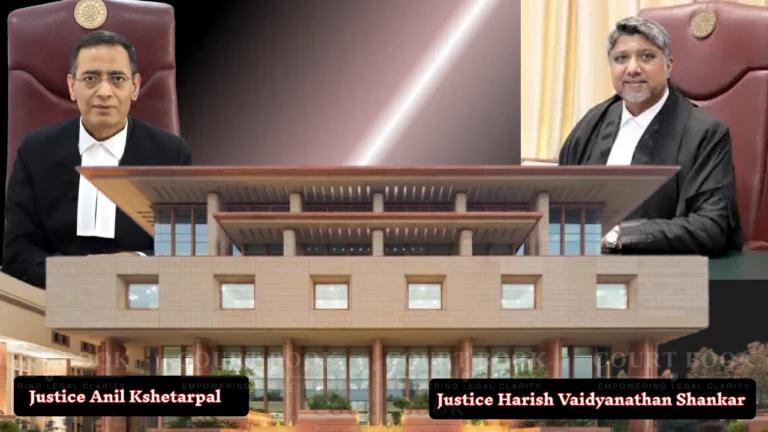The Delhi High Court, on 30 October 2025, ruled that senior citizens have a right to live peacefully and with dignity in their own homes, even when disputes with family members arise. The division bench of Justice Anil Kshetarpal and Justice Harish Vaidyanathan Shankar dismissed the appeal filed by Manju Arora, a daughter-in-law, against her eviction from her in-laws property at Shivaji Enclave, Tagore Garden, New Delhi.
"The law must protect both safety and serenity," the bench remarked while upholding the Single Judge's decision that had ordered Manju Arora to vacate her in-laws’ self-acquired property and provided her an alternate residence at their expense.
Background
The dispute traces back to 2023, when Neelam Arora and her husband, both senior citizens, filed a civil suit seeking eviction of their daughter-in-law from their self-owned house. They alleged that persistent domestic discord between their son and daughter-in-law had made the environment toxic and unbearable.
They asserted ownership over the property and said they had permitted their daughter-in-law to reside there out of familial affection, not as a legal right. Meanwhile, Manju Arora argued that the house was her shared household under the Protection of Women from Domestic Violence Act, 2005 (PWDV Act), and she could not be evicted.
The Single Judge, after hearing both sides, decreed in favour of the elderly couple while ensuring protection for the daughter-in-law by directing them to provide her an alternate flat with a rent up to ₹65,000 per month and related expenses. Manju Arora challenged this in appeal before the division bench.
Court's Observations
The bench noted that the case required balancing two sets of rights - a daughter-in-law's right to residence under the PWDV Act and senior citizens right to live peacefully under Article 21 of the Constitution and the Maintenance and Welfare of Parents and Senior Citizens Act, 2007.
Justice Kshetarpal, delivering the verdict, observed that "the right of residence is a statutory protection against destitution, not a right of ownership or perpetual occupation." The court explained that the protection cannot override the lawful ownership and dignity of senior citizens.
It was further observed that the house in question was a single dwelling unit with a common kitchen and staircase, making separate living arrangements impractical. With over 25 litigations pending between the parties, the judges held that cohabitation had become impossible.
"The continued cohabitation of such hostile parties under one roof would only perpetuate distress," the bench stated, underlining that senior citizens cannot be forced to live in constant conflict in their own home.
Rejecting the contention that eviction was unlawful, the bench clarified that offering suitable alternate accommodation fulfilled the statutory protection under Section 19(1)(f) of the PWDV Act.
"The right under the PWDV Act ensures a roof over one’s head, not a claim to opulence," the court noted. It added that the daughter-in-law’s request for a house identical in size to the current property "cannot be accepted as the Act ensures adequacy of residence, not parity of luxury."
The judges also took note of the in-laws willingness to bear all expenses - rent, brokerage, maintenance, electricity, and water charges - ensuring the arrangement was humane and equitable.
At one point, the bench remarked that "the right to peace and dignity of senior citizens cannot be indefinitely suspended in the name of shared household rights."
Decision
Upholding the lower court’s decision, the Delhi High Court dismissed the appeal. The bench modified the earlier order slightly, clarifying that a two-bedroom flat in a comparable locality would suffice, instead of a three-bedroom one, as the daughter-in-law currently resides alone while her daughter lives abroad.
The in-laws were directed to arrange the alternate accommodation within four weeks and bear rent up to ₹65,000 per month, along with security deposit and utility charges. Upon receiving the offer, Manju Arora must vacate the house within two weeks.
The judgment concluded:
"While the PWDV Act confers a vital protective right upon an aggrieved woman, it cannot extinguish or indefinitely suspend the right of senior citizens to live without distress in their own home."
With this, the Delhi High Court reaffirmed that compassion must run both ways - protecting women from destitution while also ensuring the elderly can live their final years with peace and dignity.
Case Title: Manju Arora vs. Neelam Arora & Another














